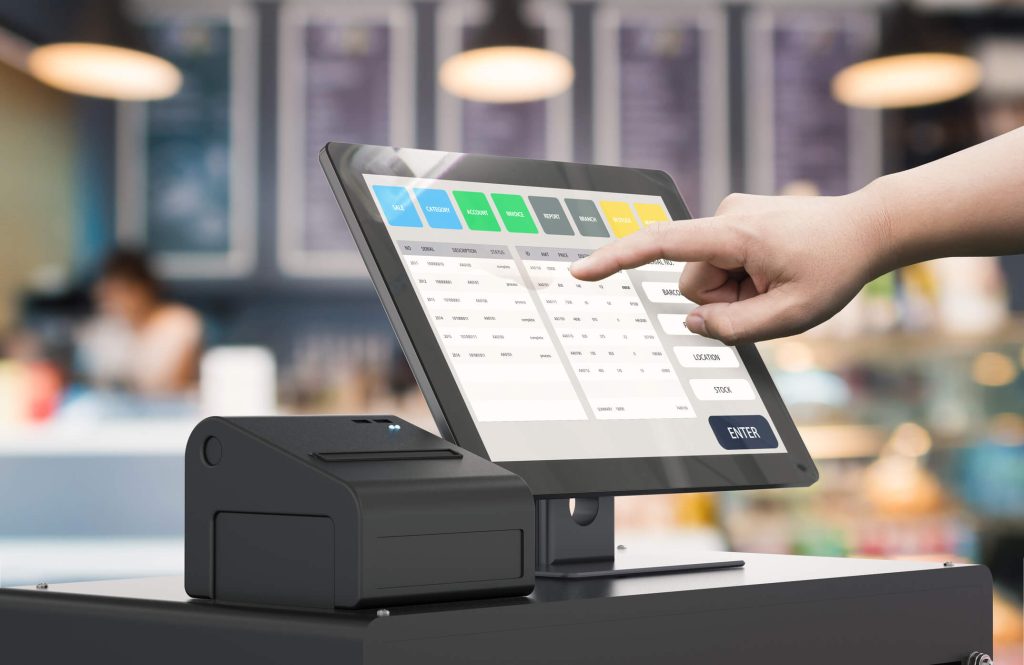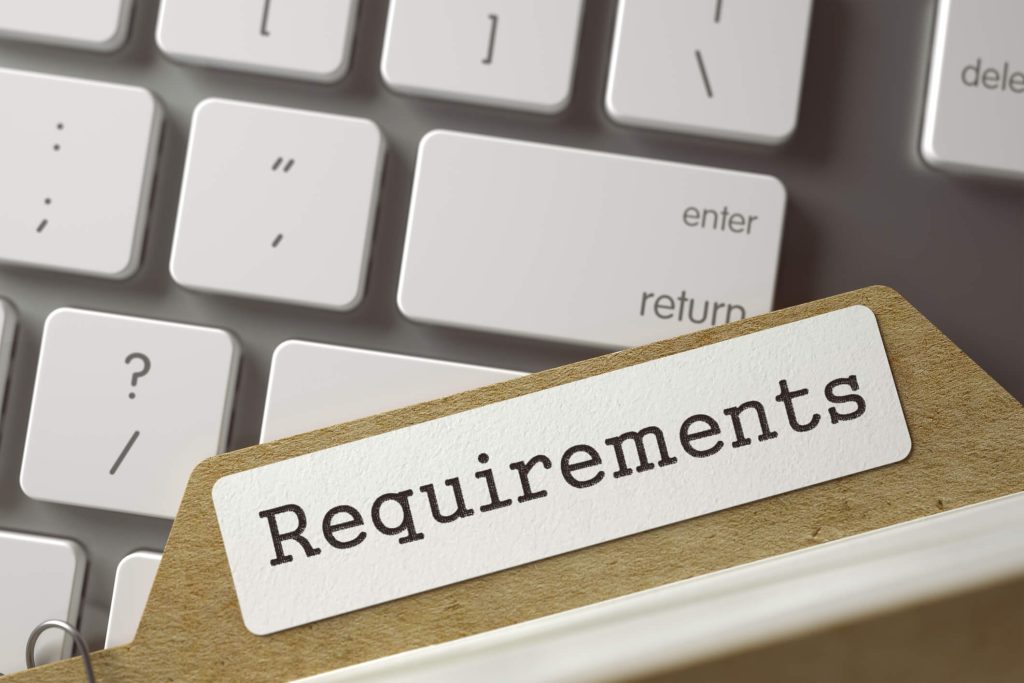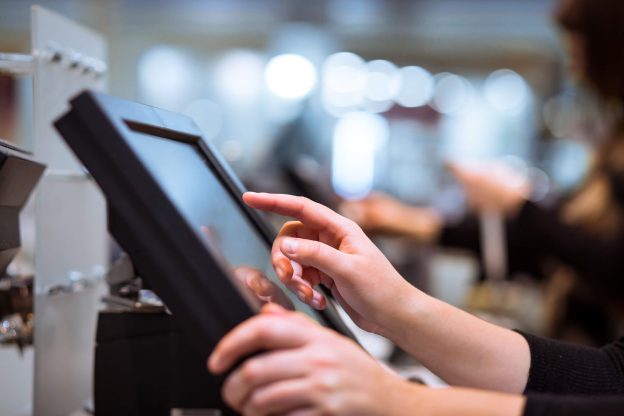In the service industry, the efficiency and functionality of a Point of Sale (POS) system can significantly influence the success of a business. Unlike retail, the service sector faces unique challenges that demand specific features from their POS systems. This guide explores the unique requirements of POS systems for service industries, emphasizing how these systems must adapt to meet the distinct needs of businesses such as restaurants, salons, and consultancy services.
What is a POS System?

A Point of Sale system is more than just a tool for processing transactions. It’s a comprehensive solution that manages sales, inventory, customer relationships, and financials. In service industries, a POS system also handles bookings, appointments, and service delivery, integrating all these aspects into a cohesive unit.
Why Specialized POS Systems?
Service industries differ fundamentally from retail sectors in terms of their product offerings and customer interactions. Services are intangible, and often, the customer experience depends significantly on personalization and efficiency. Hence, the POS systems in this sector need to cater to these unique dynamics.
Key Requirements of POS Systems in Service Industries

The service industry encompasses a wide range of businesses, including salons, spas, healthcare providers, fitness centers, and professional services. Unlike retail businesses that primarily deal with tangible products, service-based businesses focus on delivering intangible services to their customers. This fundamental difference creates unique requirements for POS systems in the service industry.
One of the key challenges faced by service businesses is the need for customization. Unlike retail businesses that often have standardized products and pricing, service businesses offer a variety of services with different pricing structures. A service-oriented POS system should allow businesses to customize their offerings, pricing, and packages to meet the specific needs of their customers.
The Importance of Customization in Service-Oriented POS Systems
Customization plays a crucial role in service-oriented POS systems. It allows businesses to tailor their offerings to individual customers, providing a personalized experience that enhances customer satisfaction. For example, a salon may offer different hair treatments, each with its own pricing and duration. A customized POS system would enable the salon to easily create and manage these services, ensuring accurate pricing and seamless appointment scheduling.
Furthermore, customization extends beyond services and pricing. Service businesses often have unique requirements for their POS systems, such as the ability to track customer preferences, manage loyalty programs, and integrate with specialized software. A customizable POS system can adapt to these specific needs, providing a comprehensive solution that streamlines operations and improves customer experience.
Streamlining Appointment Scheduling and Management
Appointment scheduling and management are critical for service-based businesses. Efficiently managing appointments ensures that customers are served promptly, minimizing wait times and maximizing customer satisfaction. A service-oriented POS system should have robust appointment scheduling features that allow businesses to easily manage their calendars, book appointments, and send reminders to customers.
Additionally, a POS system with advanced scheduling capabilities can optimize staff utilization. It should provide real-time visibility into staff availability, allowing businesses to allocate resources effectively and avoid overbooking or understaffing. This not only improves operational efficiency but also ensures that customers receive the attention they deserve.
Managing Multiple Service Providers and Staff
Service businesses often have multiple service providers or staff members who offer different services. Managing these individuals and their schedules can be challenging without the right POS system. A service-oriented POS system should have features that enable businesses to assign services to specific staff members, track their availability, and manage their commissions or payroll.
Furthermore, a POS system should facilitate seamless communication between staff members and management. For example, a spa may need to notify a massage therapist about a last-minute cancellation or inform a stylist about a customer’s specific requirements. A POS system with built-in messaging or notification features can streamline these communications, ensuring that staff members are always informed and prepared.
Integrating Inventory Management for Service-Based Businesses
While inventory management is typically associated with retail businesses, service-based businesses also have inventory needs. For example, a salon may need to track and manage its stock of hair products, while a healthcare provider may need to monitor medical supplies. A service-oriented POS system should have inventory management features that allow businesses to track and replenish their inventory efficiently.
Integration with suppliers and vendors is another crucial aspect of inventory management for service businesses. A POS system should enable businesses to easily place orders, track deliveries, and manage vendor relationships. By streamlining these processes, businesses can ensure that they have the necessary supplies to deliver their services without any disruptions.
Enhancing Customer Experience through Personalization
Personalization is a key driver of customer satisfaction in the service industry. Customers expect businesses to understand their preferences, remember their previous interactions, and provide tailored recommendations. A service-oriented POS system should have features that enable businesses to personalize the customer experience.
For example, a POS system can store customer profiles that include information such as preferred services, allergies, or special requests. When a customer visits again, the system can automatically retrieve this information, allowing staff members to provide a personalized experience. Additionally, a POS system can generate personalized recommendations based on a customer’s history, helping businesses upsell or cross-sell their services.
Utilizing Customer Relationship Management (CRM) Features
Customer Relationship Management (CRM) features are essential for service-oriented businesses. A POS system with CRM capabilities allows businesses to build and maintain strong relationships with their customers. It enables businesses to track customer interactions, manage loyalty programs, and send targeted marketing campaigns.
For example, a fitness center can use a POS system with CRM features to track attendance, offer personalized workout plans, and send reminders or promotions to encourage customer engagement. By leveraging CRM capabilities, businesses can nurture customer loyalty, increase repeat visits, and ultimately drive revenue growth.
Analyzing and Utilizing Data for Business Growth
Data analysis is a powerful tool for service businesses. A service-oriented POS system should have robust reporting and analytics capabilities that allow businesses to gain insights into their operations, customer behavior, and overall performance. By analyzing data, businesses can identify trends, make informed decisions, and drive growth.
For example, a salon can analyze data on popular services, peak hours, or customer preferences to optimize its offerings and pricing. A healthcare provider can analyze patient data to identify areas for improvement in service delivery. By utilizing data effectively, businesses can enhance their operations, improve customer experience, and stay ahead of the competition.
Ensuring Security and Compliance in Service-Oriented POS Systems
Security and compliance are critical considerations for any POS system, but they are particularly important for service-oriented businesses. These businesses often handle sensitive customer information, such as medical records or personal preferences. A service-oriented POS system should have robust security measures in place to protect this data from unauthorized access or breaches.
Additionally, service businesses may need to comply with industry-specific regulations, such as HIPAA for healthcare providers or PCI DSS for businesses that handle credit card information. A POS system should have built-in security features that help businesses meet these requirements and avoid penalties or legal issues.
Choosing the Right POS System for Your Service Business
Choosing the right POS system is crucial for service businesses. It is essential to consider factors such as customization options, appointment scheduling features, staff management capabilities, inventory integration, personalization features, CRM capabilities, data analysis tools, security measures, and compliance features.
Businesses should also consider the scalability and flexibility of the POS system. As a service business grows, its needs may change, and the POS system should be able to adapt accordingly. It is important to choose a system that can accommodate future growth and provide ongoing support and updates.
FAQs
Q.1: What features should I look for in a POS system for my service industry business?
When choosing a POS system for a service industry business such as a salon, spa, or consultancy, prioritize features that support customization of services, appointment scheduling, robust staff management, inventory management for consumables, customer relationship management (CRM), and analytics for business insights.
Q.2: How can a POS system improve customer experience in service industries?
A POS system enhances customer experience by streamlining appointment bookings, remembering personal preferences through customer profiles, offering personalized service recommendations, and managing loyalty programs to reward repeat customers.
Q.3: Can a POS system handle staff scheduling and payroll for a service business?
Yes, advanced POS systems offer functionalities to manage staff schedules, track individual performance, allocate resources effectively, and sometimes integrate payroll services, making it easier to manage multiple service providers and their compensations.
Q.4: How does inventory management work in service-based POS systems?
While service industries might not deal extensively with stock like retail, many such businesses require inventory management for consumables (like beauty products or medical supplies). POS systems for service industries can track usage, automate reordering, and integrate with suppliers to maintain optimal inventory levels.
Q.5: What are the security features to consider in a POS system for service industries?
Look for POS systems that offer encrypted data storage, secure payment processing, and compliance with relevant regulations (like HIPAA for healthcare services or PCI DSS for payment security). These features help protect sensitive customer information and ensure business compliance with legal standards.
Conclusion
In conclusion, the unique requirements of POS systems for service industries center around their need to cater to the nuances of service delivery and customer interaction. Unlike retail, service industries require systems that support extensive customization, sophisticated appointment scheduling, efficient staff management, adaptive inventory tracking, and deep customer relationship management. These systems must not only streamline operational processes but also enhance the customer experience through personalization and attentive service.

